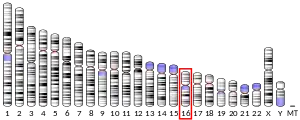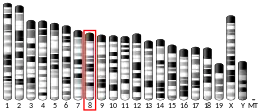| SLC7A6 | |||||||||||||||||||||||||||||||||||||||||||||||||||
|---|---|---|---|---|---|---|---|---|---|---|---|---|---|---|---|---|---|---|---|---|---|---|---|---|---|---|---|---|---|---|---|---|---|---|---|---|---|---|---|---|---|---|---|---|---|---|---|---|---|---|---|
| Identifiers | |||||||||||||||||||||||||||||||||||||||||||||||||||
| Aliases | SLC7A6, LAT-2, LAT3, y+LAT-2, solute carrier family 7 member 6 | ||||||||||||||||||||||||||||||||||||||||||||||||||
| External IDs | OMIM: 605641 MGI: 2142598 HomoloGene: 62496 GeneCards: SLC7A6 | ||||||||||||||||||||||||||||||||||||||||||||||||||
| |||||||||||||||||||||||||||||||||||||||||||||||||||
| |||||||||||||||||||||||||||||||||||||||||||||||||||
| |||||||||||||||||||||||||||||||||||||||||||||||||||
| |||||||||||||||||||||||||||||||||||||||||||||||||||
| |||||||||||||||||||||||||||||||||||||||||||||||||||
| Wikidata | |||||||||||||||||||||||||||||||||||||||||||||||||||
| |||||||||||||||||||||||||||||||||||||||||||||||||||
Y+L amino acid transporter 2, also known as cationic amino acid transporter, y+ system, is a protein that in humans is encoded by the SLC7A6 gene.[5][6]
See also
References
- 1 2 3 GRCh38: Ensembl release 89: ENSG00000103064 - Ensembl, May 2017
- 1 2 3 GRCm38: Ensembl release 89: ENSMUSG00000031904 - Ensembl, May 2017
- ↑ "Human PubMed Reference:". National Center for Biotechnology Information, U.S. National Library of Medicine.
- ↑ "Mouse PubMed Reference:". National Center for Biotechnology Information, U.S. National Library of Medicine.
- ↑ "Entrez Gene: solute carrier family 7 (cationic amino acid transporter".
- ↑ Pfeiffer R, Rossier G, Spindler B, Meier C, Kühn L, Verrey F (January 1999). "Amino acid transport of y+L-type by heterodimers of 4F2hc/CD98 and members of the glycoprotein-associated amino acid transporter family". The EMBO Journal. 18 (1): 49–57. doi:10.1093/emboj/18.1.49. PMC 1171101. PMID 9878049.
Further reading
- Sekine Y, Nishibori Y, Akimoto Y, Kudo A, Ito N, Fukuhara D, Kurayama R, Higashihara E, Babu E, Kanai Y, Asanuma K, Nagata M, Majumdar A, Tryggvason K, Yan K (July 2009). "Amino acid transporter LAT3 is required for podocyte development and function". Journal of the American Society of Nephrology. 20 (7): 1586–96. doi:10.1681/ASN.2008070809. PMC 2709689. PMID 19443642.
- Suzuki Y, Yamashita R, Shirota M, Sakakibara Y, Chiba J, Mizushima-Sugano J, Nakai K, Sugano S (September 2004). "Sequence comparison of human and mouse genes reveals a homologous block structure in the promoter regions". Genome Research. 14 (9): 1711–8. doi:10.1101/gr.2435604. PMC 515316. PMID 15342556.
- Torrents D, Estévez R, Pineda M, Fernández E, Lloberas J, Shi YB, Zorzano A, Palacín M (December 1998). "Identification and characterization of a membrane protein (y+L amino acid transporter-1) that associates with 4F2hc to encode the amino acid transport activity y+L. A candidate gene for lysinuric protein intolerance". The Journal of Biological Chemistry. 273 (49): 32437–45. doi:10.1074/jbc.273.49.32437. hdl:2445/176951. PMID 9829974.
- Bröer A, Wagner CA, Lang F, Bröer S (August 2000). "The heterodimeric amino acid transporter 4F2hc/y+LAT2 mediates arginine efflux in exchange with glutamine". The Biochemical Journal. 349 Pt 3 (Pt 3): 787–95. doi:10.1042/bj3490787. PMC 1221206. PMID 10903140.
- Xu D, Hemler ME (August 2005). "Metabolic activation-related CD147-CD98 complex". Molecular & Cellular Proteomics. 4 (8): 1061–71. doi:10.1074/mcp.M400207-MCP200. PMC 1351277. PMID 15901826.
This article is issued from Wikipedia. The text is licensed under Creative Commons - Attribution - Sharealike. Additional terms may apply for the media files.



